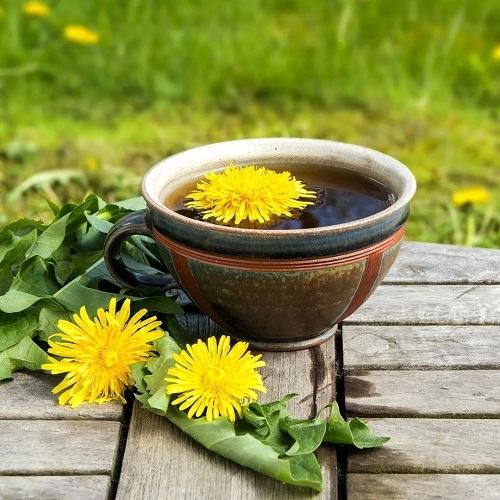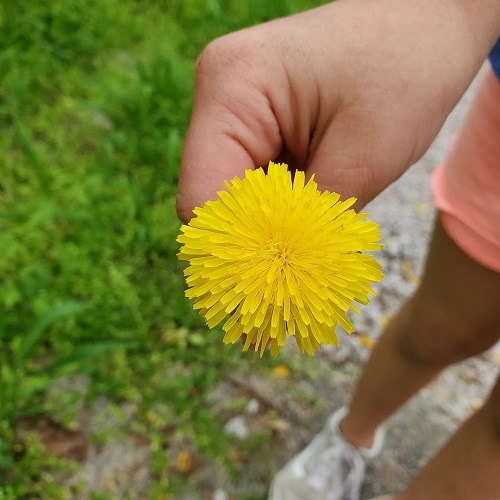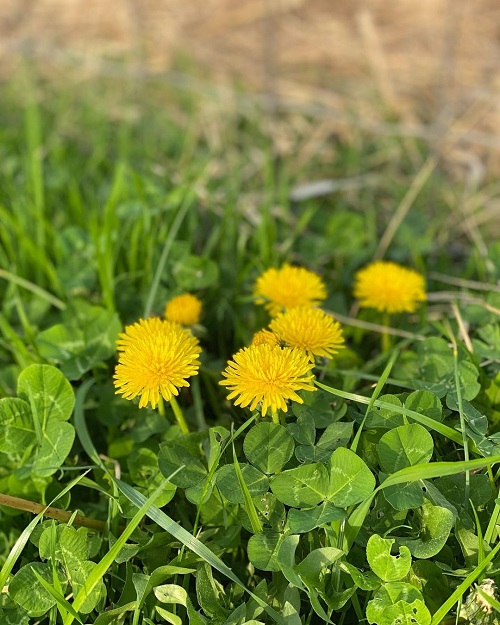Wondering Why Dandelion is More than a Weed? Here are some Amazing Dandelion Benefits backed by Science that will blow your mind!
The humble dandelion—you’ve probably seen this little yellow flower sprouting up in lawns and parks, often dismissed as a pesky weed. But what if we told you that this underappreciated flora harbors secrets that could redefine its role in your garden and even your health? Prepare to be amazed as we unravel—Why Dandelion is More than a Weed!
About Dandelion
The Dandelion, scientifically known as Taraxacum officinale, is a widely recognized flowering plant that belongs to the Asteraceae family. Despite being commonly classified as a weed, dandelions have numerous culinary and medicinal applications.
Dandelions are easily identifiable by their bright yellow flowers and rosette of toothed leaves, from which the name “dandelion” is derived — “dent-de-lion” means “lion’s tooth” in French, referring to the serrated leaves. After the flower head matures, it transforms into a spherical seed head often called a “dandelion clock.” These contain many single-seeded fruits, or achenes, each equipped with a pappus (a tuft of hairs) which allows them to disperse widely in the wind.
Check out more flowers starting with D here
Dandelions are highly adaptable and can grow in a variety of environments, but they prefer full sunlight and well-drained soils. They are found in many parts of the world, including North America, Europe, Asia, and northern Africa.
Dandelions are perennials, meaning they can grow year after year. They are often one of the first plants to sprout in the spring and can continue to grow and bloom until the first frost in the fall. The plant forms a deep taproot which can make it difficult to remove completely from a garden and also allows it to survive in dry conditions.
Amazing Dandelion Health Benefits
1. Reduce Cholesterol

Dandelions have bioactive compounds that may aid in reducing cholesterol. As per this study done in 2010 and executed on rabbits proved that dandelion leaves and roots assist in reducing cholesterol in animals taking a high-cholesterol diet.
2. Rich in Antioxidants
Dandelions are rich in beta-carotene, which is an antioxidant that aids in safeguarding cells from damage. According to this research, carotenoids like beta-carotene help greatly in lowering cell damage. Its flowers also contain polyphenols, which are a kind of antioxidant.
3. May Aid in Lowering Inflammation
According to this study, chemicals in dandelions can aid in lowering inflammation. The study was not executed on humans; hence more research is needed.
Malabar Spinach Benefits That’ll Make You Grow It
4. May Reduce Blood Pressure

According to this report, potassium lowers blood pressure, and Dandelions are a good source of potassium. According to this research, people consuming potassium-rich food have a reduction in blood pressure.
5. Support Digestion
Dandelion is also popular as a traditional remedy for treating constipation and other digestive problems. This study on animal digestion shows chemicals in dandelions aid the digestive system.
6. Control Blood Sugar
In this research, it shows that this flower has antioxidative, antihyperglycemic, and anti-inflammatory characteristics that may aid in treating type 2 diabetes.
7. Lowers Cancer Risk
According to this study on cancer growth in a test tube, dandelion extract may support to decrease in the growth of liver cancer.
Note: More studies are needed to reveal the effects of dandelion for cancer treatment.
Amazing Jasmine Plant Benefits You Should Know
8. Immunity Booster
Dandelion can assist in raising immunity; it has both antibacterial and antiviral properties. In this study, it shows that dandelion restricts the growth of hepatitis B.
9. Help Weight Loss

Dandelion has the ability to refine carbohydrate metabolism and decrease fat absorption. This study on mice reveals that chlorogenic acid, a chemical that exists in dandelion, may aid in losing weight and lipid retention.
10. Promote Healthy Skin
As per some research, dandelion may assist in shielding the skin from sun damage. In this study on skin cells, it shows that dandelion can lower the effect of one kind of harmful UV light.
Potent Insulin Plant Benefits and Uses (Backed by Science)
Some Other Dandelion Benefits that Proves It’s More Than a Weed

11. Bring Liveliness in Early Spring
Once the frost goes away, dandelions start to sprinkle on the southern slopes. They illuminate gray and brown landscapes with bursts of chartreuse.
In just a few weeks, these dandelions begin to open into a blanket of gold contrasting with green. All of it happens without sowing seeds.
12. Edible Plant
Every part of the dandelion is edible. The leaves can be used in salads, soups, or as a cooked green. The flowers can be used to make dandelion wine, and the roots can be used as a coffee substitute when they are roasted and ground.
Best Medicinal Plants with Their Benefits
13. Nutrient Rich
Dandelions are very nutritious. They’re a good source of vitamins A, C, and K. They also contain vitamin E, folate, and small amounts of other B vitamins.
Dandelions provide a substantial amount of several minerals, including iron, calcium, magnesium, and potassium.
14. Medicinal Uses
Dandelion has a long history of use in traditional medicine. It has been used to treat a variety of physical ailments, including cancer, acne, liver disease, and digestive disorders.
Dandelion is popular as a diuretic, increasing the amount of urine the body produces. The roots are also part of some coffee substitutes and have been used traditionally in many cultures to treat ailments ranging from liver and kidney disease to heartburn and appendicitis.
15. Supports Pollinators
Dandelions are one of the early spring sources of nectar and pollen for insects, including honeybees and butterflies. Their long flowering season provides valuable food for pollinators throughout the spring, summer, and fall.
Invite these 10 Pollinators to Have the Most Productive Garden
16. Soil Indicator
Dandelions can also tell you about the health of your soil. They are common in compact soils, and their deep taproot can help to break up hard, compact soil, improving soil structure.
17. Companion Planting
In the garden, dandelions can be useful companion plants. Their deep roots bring up nutrients from the soil that other shallower-rooting plants can then use.
Check out the Best Leafy Green Vegetables to Grow in Containers here
18. Ecological Indicator
Dandelions are common in marshy habitats, and their presence can indicate soil that is high in calcium and low in potassium.



